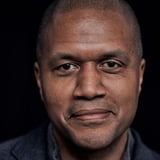Summary
UX research is inherently future-oriented. As researchers, we are often on the lookout to understand what users expect, what they anticipate to happen, and what they hope will come next. How we orient ourselves towards the future is part of how we experience the present. By drawing attention to the nuances of different future orientations in everyday life, we can unlock new depths of understanding to improve product and service design. Join this session to learn how to center the future as an object of study and apply frameworks from futures anthropology to advance tactical and strategic research.
Key Insights
-
•
Time is experienced uniquely by each individual, influencing how we relate to the present and future.
-
•
UX research is inherently future-focused but lacks frameworks to understand how users conceptualize the future.
-
•
Futures anthropology is a cross-cultural, ethnographic approach that centers the future as an object of study.
-
•
Six distinct future orientations—expectation, anticipation, speculation, potential, hope, and destiny—offer lenses to analyze user mindset and behavior.
-
•
These orientations overlap and manifest differently throughout a user journey, revealing emotional and cognitive states.
-
•
In practical UX work, futures anthropology helps identify user needs and informs design and feature prioritization, as shown in Nicole’s government funding application project.
-
•
Speculation often appears as hesitation or pauses in user behavior, signaling uncertainty about future outcomes.
-
•
Hope and destiny reflect positive and fixed narratives users hold about their futures, which can be critical for motivation or mindset.
-
•
Not all communities have equal access to future orientations; marginalized groups may face constrained or different future imaginaries.
-
•
Integrating futures anthropology requires reflexivity in research identity and methodology, extending from data collection to team collaboration and strategic planning.
Notable Quotes
"There are over 7 billion futures of right now."
"How we orient ourselves to the future impacts how we experience the present."
"Expectation describes how things ought to be and reinforces the distinction between the present and what is not yet here."
"Anticipation involves preparatory actions to manage uncertainty about future conditions."
"Speculation fills in the gaps where past experience fails us, often seen in hesitation or pauses."
"Potential refers to not yet actualized possibilities that may or may not come to fruition."
"Hope generates optimistic momentum towards a possibility becoming real."
"Destiny is the belief that a certain future outcome is predetermined regardless of the path."
"Not everyone has the same capacity to aspire to a future; this is critical when working with marginalized communities."
"We have a role to play in democratizing the future and amplifying more visions of what that future can hold."
Or choose a question:
















More Videos

"Timely interactions that log users out without saving progress cause abandonment, especially for people with disabilities."
Sam ProulxOnline Shopping: Designing an Accessible Experience
June 7, 2023

"Continuous feedback is anonymous and focused on teammates’ goals to help keep focus on what matters most."
Ignacio MartinezFair and Effective Designer Evaluation
September 25, 2024

"Transformation is metamorphosis; it's often messy and aims to create systems out of chaos."
Sarah Kinkade Mariana Ortiz-ReyesDesign Management Models in the Face of Transformation
June 8, 2022

"The Shakers’ principled approach to design was a precursor to Bauhaus’s form follows function and today’s user-centered values."
Daniel GloydWarming the User Experience: Lessons from America's first and most radical human-centered designers
May 9, 2024

"Journalists like me are in the business of interrogating reality to get at the truth."
Patrick BoehlerFishing for Real Needs: Reimagining Journalism Needs with AI
June 10, 2025

"Providing stakeholders with real user voices alongside insights is key to internalizing and acting on research."
Andy Barraclough Betsy NelsonFrom Costly Complexity to Efficient Insights: Why UX Teams Are Switching To Voxpopme
September 23, 2024

"Many tech harms run counter to business goals and can be controversial to address."
Alexandra SchmidtWhy Ethics Can't Save Tech
November 18, 2022

"Strategic friction is about where you apply friction deliberately to create insight and transformation."
Louis RosenfeldDiscussion: What Operations can teach DesignOps
November 6, 2017

"Design systems are the language of implementation; they allow us to communicate ideas in a common format and process."
Mitchell BernsteinOrganizing Chaos: How IBM is Defining Design Systems with Sketch for an Ever-Changing AI Landscape
September 29, 2021
















